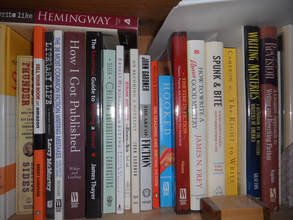 A friend and I planned on playing a WWII board game about the Battle of the Bulge. After the golf course closed for the winter, we’d used our regular golfing time to switch over and play a game that covered December 16 to January 15, 1944-45. My personal reason for playing the game is that my dad was in Bastogne in 1944 when the Offensive began. He didn’t leave Bastogne until December 19 when the Allies realized they were seeing a full-blown attack by the German Army to take control of Belgium. My dad’s unit was a Signal Aircraft Warning squadron with a truck-based radar unit and since the radar was considered classified, he was ordered to keep it from being captured by the Germans. He and his unit moved ten miles away on the 19th, then twenty more miles away on the 22nd, and twenty more miles on the 23rd, settling in Philippeville, Belgium, until mid-January, after the Allies had successfully pushed the Germans backwards. However, after watching YouTube videos of others playing the game, my friend figured out that our particular board game was based on a book by an eminent WWII historian, uses a play-board that is about five feet by six feet, uses a few hundred game pieces, has a twenty-page introduction manual, a twenty-page players’ manual, a huge guide to player strategies, and some pretty complex rules. The time period for each “move” by a player covers six hours of historical time during the battle, but one “move” takes about two hours of clock time to complete. That is, if we (the Allies) made a strategic move using our game pieces, then the rules require updating the German pieces on the board (according to history) takes as long as two hours per move. We would then make another move. If you consider that the game has 4 mutual moves per 24-hour historical cycle, for 30 historical days, taking about two clock hours per move, we could spend 240 hours to play one game. Playing only a couple of hours every week, it would take us a couple of years to finish. That didn’t seem reasonable, so my friend ordered another Battle of the Bulge game that takes a total of 2 hours to play. That’s more like what we wanted and is much more at my level. Before realizing this, I had ordered the history book on which the game was based, planning on reading the book before playing the game. I found it to be about two inches thick, with 712 pages. I am sure that it has a great deal of information that I would like to know, but it might take the winter just to read it. I decided not to read it, even with it being well-written and having information I wanted to know. I hate not reading books after having spent the money to buy them, and, in this instance, would certainly have learned many good details about the Battle of the Bulge. I’d like to visit Bastogne someday and reading the book would have given me an insider’s knowledge for my trip. However, playing the game was supposed to be fun and spending a significant part of my remaining life doing so wouldn’t be any fun at all. Giving myself permission to not read the one book, I admitted to myself that I had a number of books in my office that I would never read, books that I’ve read once that I wouldn’t read again, and other books whose next use would be for selling at a garage sale after my death. Meanwhile, I had five stacks of to-be-read books, from five to twelve books each, sitting in various places throughout my house. In a burst of honesty, I now have a table with more than 120 books that I am taking to my local library. They have a volunteer-led bookstore that sells donated used books. By consolidating the empty shelf space, I was able to fit in my other books. I do feel bad. Writers are supposed to have immense libraries. Those bastions of literary words are meant to lead to inspiration, I think. In this regard, I’m rather weak. I have a lot of interests and reading is only one of them. Being surrounded by unread books makes me feel guilty, not inspired. One benefit from my soul cleansing is that I now have a better idea of the books I have and what seems to be relevant to me. I have three shelves of books about New Mexico and the Southwest; one half-shelf about cowboys and frontier explorers; one shelf that holds large format books, pertaining mostly to history (and lighthouses; I like lighthouses); three shelves about World War II; one half-shelf about witchcraft in the Southwest, while the other half holds travel books. I have two shelves of writing books, four of novels, and one dedicated to a collection of books by Hemingway, Robert Ruark, and Larry McMurtry. Lastly, I have one shelf that holds books about woodcraft, guitar making, and furniture making. I’m sure that I’m giving away important books that would benefit me. On the other hand, they would only benefit me if I read them, so honesty is sometimes best used to improve the situation, even at the cost of giving away good books. I hope other people will enjoy them.
0 Comments
Leave a Reply. |
AuthorDon Willerton has been a reader all his life and yearns to write words like the authors he has read. He's working hard at it and invites others to share their experiences. |

 RSS Feed
RSS Feed